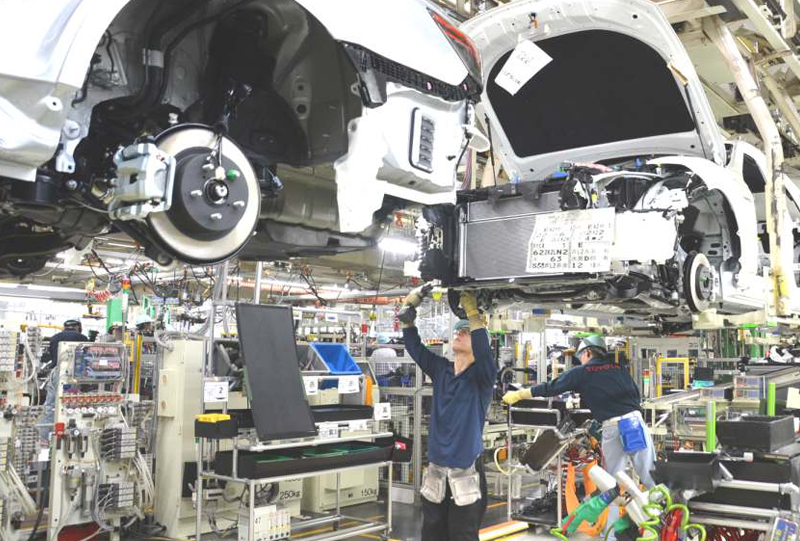Japan’s Isuzu, Hino & Toyota team up to accelerate future of mobility with battery-powered vehicles
Japan’s global car and truck manufacturers Isuzu Motors Limited, (Isuzu), Hino Motors, Ltd. (Hino), and Toyota Motor Corporation (Toyota) jointly announced on March 24 they have agreed on a new partnership in commercial vehicles tackling the future of mobility that will address environmental concerns.
Isuzu Motors Limited President Masanori Katayama, Toyota Motor Corporation President Akio Toyoda and Hino Motors Ltd. President & CEO Yoshio Shimo jointly held a live streamed press conference in Tokyo about their firms’ historic partnership.
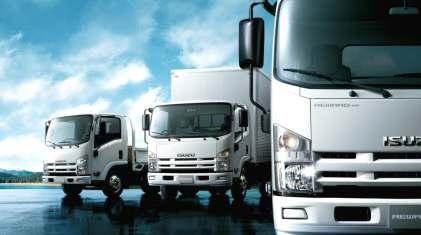 The companies said they have agreed to combine Toyota’s CASE technologies with the commercial vehicle foundations cultivated by Isuzu and Hino. Through this collaboration, they aim to accelerate societal implementation and dissemination of CASE technologies and services and to help address various difficulties facing the transportation industry as well as help achieve a carbon-neutral society.
The companies said they have agreed to combine Toyota’s CASE technologies with the commercial vehicle foundations cultivated by Isuzu and Hino. Through this collaboration, they aim to accelerate societal implementation and dissemination of CASE technologies and services and to help address various difficulties facing the transportation industry as well as help achieve a carbon-neutral society.
Specifically, the three companies plan to jointly work on the development of battery electric vehicles (BEVs) and fuel cell electric vehicles (FCEVs), autonomous driving technologies, and electronic platforms centered on the domain of small commercial-purpose trucks.
While working together on BEVs and FCEVs to reduce vehicle costs, the three companies plan to advance infrastructure-coordinated societal implementation, such as by introducing FCEV trucks to hydrogen-based society demonstrations in Japan’s Fukushima Prefecture, and accelerate their dissemination initiatives.
Connected tech platforms
Isuzu, Hino, and Toyota also plan to link their connected technology platforms to build a platform for commercial vehicles that can help solve customers’ problems. Through this platform, they intend to provide various logistics solutions that not only help improve commercial vehicle transport efficiencies but also contribute to reducing CO2 emissions.
To promote their partnership, Isuzu, Hino, and Toyota are establishing Commercial Japan Partnership Technologies Corporation, a company for planning CASE technologies and services for commercial vehicles based on discussions among its three parent companies.
Going forward, Isuzu, Hino, and Toyota intend to deepen their collaboration while openly considering cooperation with other like-minded partners.
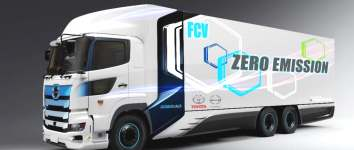 Capital partnership between Isuzu and Toyota
Capital partnership between Isuzu and Toyota
To smoothly construct and advance the collaboration announced today, Isuzu and Toyota have agreed on a capital partnership.
By way of Isuzu’s cancellation of treasury stock through a third-party allotment, Toyota is scheduled to acquire 39 million shares of Isuzu common stock worth a total of 42.8 billion yen (resulting in Toyota having 4.6 percent ownership of Isuzu in terms of total issued shares as of the end of September 2020 and a post-allotment voting rights ratio at Isuzu of 5.02 percent).
Isuzu plans to acquire Toyota shares of the same value through a market purchase.
Partnership background
With the CASE revolution, as the automobile industry enters a once-in-a-century period of profound transformation, Isuzu and Hino have been working on responses to CASE that match the unique characteristics of commercial vehicles, with a focus on electrification and connected technologies & services.
Toyota has been accelerating upfront investment in CASE technology and establishing partners with the aim of transforming into a mobility company. In the area of vehicle electrification, it has been engaging in all-around technological development and advancing vehicle electrification through the dissemination of hybrid electric vehicles and the early commercialization of FCEVs, among other initiatives.
To promote the reduction of CO2 emissions toward the Japanese government’s goal set last year of achieving a carbon-neutral society by 2050, the significance of electrifying both passenger and commercial vehicles in a way that responds to the energy situation in each region will grow more important than ever, as will the significance of energy-saving technologies.
Also, with the progress of digitalization, expectations are increasing for new services that make people’s lives safer, securer, and happier by linking vehicle data and various types of information.
CASE technologies can only contribute to society once they become widespread. Commercial vehicles can play important roles in dissemination, as they travel long distances for extended periods of time to support the economy and society and can be easily linked with infrastructure development. And from the standpoint of carbon neutrality, commercial vehicles can especially fulfill a key function.
In the transportation industry where commercial vehicles are used to support the movement of people and goods, expectations are that the power of CASE, centered on connected technologies and services, will deliver improvements in addressing transport inefficiencies, driver shortages, long working hours, and other issues facing the industry.
Solving these kinds of social issues is not something that one company can accomplish alone. It is necessary to seek a wide range of like-minded counterparts, apply their different strengths, and work together for those supporting transportation and for society.
Considering this situation, Isuzu, Hino, and Toyota have come to believe that Isuzu and Hino must cooperate in promoting CASE support for commercial vehicles and that Toyota must accelerate the societal implementation of its CASE technologies through the commercial vehicle businesses of Isuzu and Hino. Source: Isuzu, Toyota & Hino newsrooms
CEOs agree collaboration is key to building a better future
Fiercely rival companies traditionally don’t collaborate on projects for proprietary reasons. But these days, collaboration has emerged as the more practical option to achieve common goals for the greater good of mankind.
With climate change fast impacting how we live and so many natural disasters occurring at abnormal pace destroying everything in their paths, so much is at stake if major stakeholders like those in the global industry don’t do their part to help save the planet.
Climate-related disasters have cost the world roughly $650 billion from 2016-2018, according to Morgan Stanley. Over recent years, global warming and climate change had caused more destructions, droughts, wildfires, floods, diseases and displacement of people.
Here’s what the CEOs of Isuzu Motors Limited, Toyota Motor Corporation and Hino Motors Ltd. think about their landmark partnership. (Text & Photos from Toyota Times)
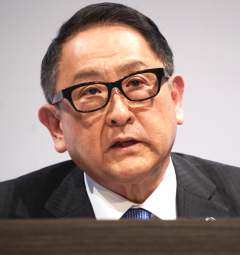 Toyota Motor Corporation President Akio Toyoda
Toyota Motor Corporation President Akio Toyoda
To build an ever-better mobility society, it is becoming more important not to only compete but to also cooperate. This partnership could not be realized even if any one of our three companies were missing. By utilizing the strengths of our three companies, I think we can help many of our transportation colleagues on site.
This desire to help will also be linked to our hopes for the reconstruction of Tohoku. Since the Great East Japan Earthquake, I have visited Tohoku every year in March. That’s because I have thought all along that what I can do is never forget about the disaster.
This year marks the 10th anniversary of the earthquake disaster, so I was wondering which site I should visit. As I was thinking about it, I was given an opportunity to visit the town of Namie in Fukushima Prefecture, which is advancing initiatives for the future.
On-site, I was able to talk with Fukushima Governor Uchibori and Namie Mayor Yoshida about their thoughts on reconstruction. One project has advanced since then.
Isuzu and Hino fuel cell trucks are carrying goods using green hydrogen produced in the town of Namie. cAnd we will contribute to the realization of uniform, waste-free delivery by linking “make”, “transport”, and “use,” using connected technology.
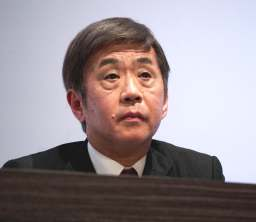 Isuzu Motors Limited President Masanori Katayama
Isuzu Motors Limited President Masanori Katayama
Of course, Hino is our biggest rival, and we are fighting it out with them every day all over the world. That will never change. However, at the root of our competition is a common desire to improve logistics and society.
Also, although Toyota is a passenger car manufacturer, there is no difference between passenger cars and commercial vehicles when it comes to Toyota’s desire to make society and Japan better. Toyota is a company that has brought about a seemingly uncountable number of innovations since its inception. In terms of manufacturing, there is the Toyota Production System, and in terms of electrification, there are hybrid vehicles and fuel cell hybrid vehicles.
Hino knows commercial vehicles best. Toyota has a huge amount of technology and a powerful ability to execute, both of which have a high potential for playing a role in small commercial vehicles.
We have concluded that if our three companies work together, we will be able to innovate to overcome the rough seas of CASE and provide our customers with light-duty trucks—solutions—that are even more useful.
However, through our new partnership, our three companies will jointly work on the battery electrification and fuel cell electrification of light-duty trucks, reducing vehicle costs, and, at the same time, we will work with society and our customers to promote BEVs and FCEVs in earnest, including through societal implementation in Fukushima Prefecture.
Increases in distribution volumes are leading to labor shortages. Redelivery and busy cargo handling are increasing driver burden. And the advance of digitalization has created new and growing transportation needs. To respond to these and other issues, we must respond to the profound transformation of industry in this age of digitalization.
The lean and efficient movement of trucks can contribute to achieving carbon neutrality. And connected technologies hold the key.
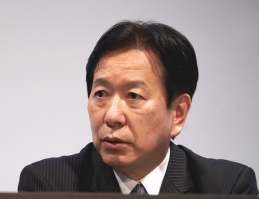 Hino Motors Ltd. President & CEO Yoshio Shimo
Hino Motors Ltd. President & CEO Yoshio Shimo
Today there are over 60,000 logistics companies operating in Japan. Every day these companies load, haul and deliver cargo. It’s hard work, yet everyone involved in overland shipping takes great care with each and every package, determined to deliver it surely to each waiting recipient.
At Hino Motors, we share the perspective of our customers working at the heart of the lifeline that is overland shipping and are working hard to solve a slate of problems. But the environment enfolding the logistics industry is unforgiving. If things continue as they are, the day may come when those packages stop being delivered.
One issue is a shortage of drivers. The reason is that nobody is willing to take the job. Driving trucks is a tough way to earn a living. The risk of traffic accidents is ever-present, the hours are long and it involves a lot of work besides driving.
Long-haul drivers often spend as much time on work other than driving as they do on driving. Sometimes even more.
By coordinating with each other in a connected manner, companies can reduce waiting times and improve loading efficiency. This partnership will also make it possible for more and more operators to adopt electric trucks.
Moreover, as these solutions make progress, we can expect work in overland shipping to become more attractive, so that the number of drivers and others involved in logistics will grow.










